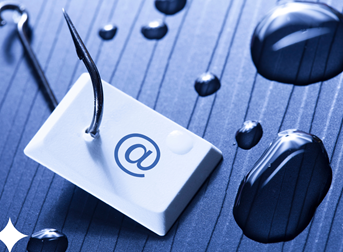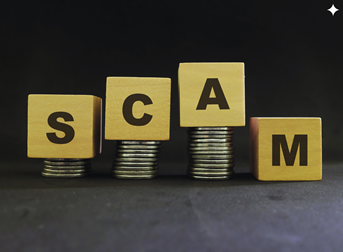Guard Your Funds: Prevent Fraud in Overseas Transfers in 2024
In an interconnected world where global transactions are commonplace, the need to send money abroad is inevitable. However, with this convenience comes the risk of fraudulent activities targeting unsuspecting individuals and businesses.
Newer tech in 2024 means fraudsters get more creative to steal your money. Therefore, it is imperative to stay informed and vigilant to protect your hard-earned money from falling into the wrong hands.


The Evolution of Fraud: Adapting to Modern Challenges
Fraudulent activities have evolved alongside technological advancements, posing new challenges for individuals and institutions alike.
From sophisticated phishing scams to identity theft, fraudsters employ various tactics to deceive unsuspecting victims. New digital ways to pay (like crypto) make things trickier for catching criminals.
Understanding the Risks: Common Fraudulent Schemes
Protecting Yourself: Tips for Safe Money Transfers
Verify the Recipient
Before sending money abroad, always verify the identity of the recipient and ensure that the transaction is legitimate. Avoid sending money to unknown individuals or entities, especially if you have doubts about their credibility.
Use Secure Payment Methods
Use safe ways to pay that scramble your information and protect you from scams. This includes well-known money transfer services and banks. Avoid sending money through unsecured channels or using unfamiliar platforms that may compromise the security of your transactions.
Enable Two-Factor Authentication
Enhance the security of your online accounts by enabling two-factor authentication (2FA) wherever possible. Use an extra layer of security to shield your accounts from hackers. This makes it harder for them to steal your money or pretend to be you.
Stay Informed
Stay informed about the latest fraud trends and scams circulating in the financial industry. Regularly update yourself on common fraud schemes and educate yourself on how to recognize and avoid potential threats. By staying informed, you can better protect yourself against fraudulent activities and safeguard your finances.
Additional Tips for Enhanced Security:
Monitor Your Accounts Regularly
Frequent monitoring of your financial accounts is essential for detecting any suspicious activity promptly. Keep a close eye on your bank statements, credit card transactions, and online payment history. If you notice any unauthorized or unfamiliar transactions, report them to your financial institution immediately to prevent further fraud.
Secure Your Devices
Keep your devices safe! Secure your smartphones, tablets, and computers against malware, viruses, and cyberattacks. Install reputable antivirus software, enable firewalls, and regularly update your operating system and applications to patch any security vulnerabilities. Strong device security keeps your personal and financial information safe from prying eyes.
Be Cautious of Unsolicited Requests
Be wary of emails, calls, or texts asking for your personal or financial information. It could be a scam. Banks and financial companies won't contact you for passwords, PINs, or account numbers. If you receive such requests, do not respond and report them to the appropriate authorities.
Educate Yourself and Others
Take the initiative to educate yourself and others about the importance of cybersecurity and fraud prevention. Share information about common fraud schemes, phishing tactics, and security best practices with friends, family, and colleagues. By raising awareness of cybersecurity, we can protect our communities financially.
Empowering Yourself Against Fraud
As we navigate an increasingly interconnected world, protecting our finances from fraud becomes paramount.
The more you know about these scams, the better you can fight them and protect your hard-earned money. By staying educated and taking steps to be safe, you can stop criminals from stealing your information. Remember to exercise caution, verify transactions, and prioritize security when sending money abroad.
At Moneycorp, we are dedicated to keeping your finances from falling victim to fraud in 2024 and beyond.


Safeguard Your Finances with Confidence
If you're looking for a reliable and secure partner for your overseas money transfers, look no further than Moneycorp. We offer competitive exchange rates, low fees, and a commitment to safeguarding your funds. Open a free account today and experience the peace of mind that comes with a trusted provider. Visit our website or get in touch with a currency expert to learn more about how Moneycorp can help you navigate international transactions with confidence.


